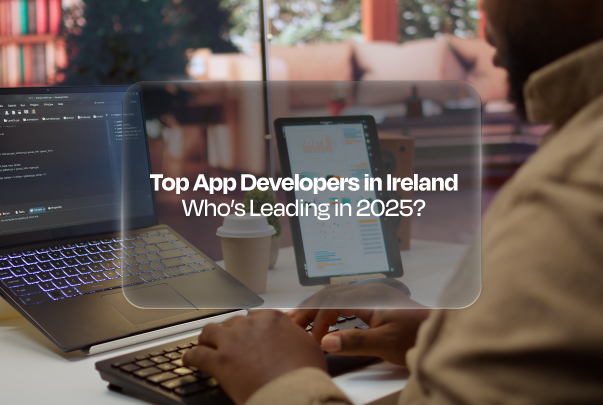Ireland’s mobile development scene has moved far beyond code and design. With businesses investing in digital tools for automation, customer experience, and SaaS delivery, app developers are playing a far more strategic role in 2025.
Today’s best developers aren’t defined by the number of apps they’ve launched—but by how they think, plan, and scale alongside the businesses they work with. Whether you’re launching a digital-first product, automating your service delivery, or creating a subscription-based platform, you’ll find Ireland’s top developers focused on real-world performance, not vanity features.
Here’s what sets them apart—and why these traits are now critical for any brand entering the mobile space.
They Architect for Automation and APIs
Businesses are using mobile apps not just as sales channels, but as operational hubs for teams to stay connected and manage resources. That’s why Ireland’s top app developers are building apps that automate internal workflows, integrate third-party services, and reduce manual tasks for both users and staff.
These app developers think beyond the usual code; they are creating:
- Apps that sync with CRM platforms like HubSpot or Salesforce
- Custom dashboards built using Firebase Cloud Functions or Supabase
- Inventory apps that automatically update when a sale is made
Micro-SaaS startups, especially in finance, real estate, or logistics, benefit hugely from developers who can implement webhook-driven automations, scalable REST APIs, and database structures that reduce the need for human input after launch.
They Know When to Use Native and When to Go Cross-Platform
Businesses today expect fast development, low maintenance, and consistent performance across devices. That’s why cross-platform frameworks like Flutter, React Native, and even Kotlin Multiplatform Mobile (KMM) are being used more than ever.
But developers who stand out don’t just default to these tools, they analyze:
- Will the app need advanced camera, GPS, or Bluetooth use?
- Are animations or performance speed critical to the user experience?
- Will it support wearables, TV apps, or voice commands?
By balancing performance needs with cost efficiency, they make smart architectural choices early, so businesses don’t hit dead ends later.
They Build with SaaS Logic and Subscription Models in Mind
In 2025, many apps are not standalone products but micro-SaaS platforms. The top app developers in Ireland such as Innoenhance, understand the SaaS (Software as a Service) trends and are developing platforms that can help businesses reach wider audiences. They can create lightweight digital tools that target niche audiences while getting monetised through monthly subscriptions or usage-based pricing.
Examples of prominent app categories include:
- AI meeting summary tools for coaches, analysts, and consultants
- GDPR and tax compliance trackers for freelancers and agencies
- Site inspection apps for safety reporting in construction or property management
- Video and content libraries for education, fitness, and coaching creators
- Micro-CRM tools for salons, realtors, and field service operators
Top Irish developers build with this model in mind. They integrate with payment providers like Stripe, set up tiered access systems, and connect with analytics tools like Amplitude or PostHog to track user retention, feature engagement, and churn risk.
They Treat Security and Privacy as Core Functions
For B2B and B2C apps alike, platform security is no longer just a selling point but a basic expectation. From financial tools to healthcare portals, users expect their data to be encrypted, private, and impossible to exploit.
Ireland’s best developers are implementing:
- OAuth2 and OpenID Connect for secure login
- Database-level row-based security (especially in Supabase or PostgreSQL setups)
- Secure cloud hosting via Google Cloud Run or AWS Lambda
Beyond compliance with GDPR, many are even helping startups integrate zero-trust models into mobile platforms, making sure only verified devices and sessions can access critical data.
They Understand the Commercial Side of Apps
Building an app isn’t just about releasing a functional product; it’s about creating a sustainable revenue stream that aligns with business goals. Ireland’s leading developers recognise that their role doesn’t end at writing code. They actively help clients shape the commercial model of the app, ensuring that monetisation is baked into the foundation, not treated as an afterthought.
Here’s how they do it:
- Top developers implement in-app purchases that support freemium, tiered, or one-time pricing based on user behavior.
- Apps offering B2B services often benefit from affiliate systems or white-labeled versions for wider distribution.
- Developers collaborate with marketing teams to improve App Store Optimization through keywords, icons, and previews.
- Post-launch support often includes A/B testing for onboarding, pricing screens, and feature descriptions.
- Top developers design UX that nudges users toward meaningful actions, not just engagement.
InnoEnhance Brings These Traits to Every Project
If your business is entering the app market in 2025, you’ll need a top app developer in Ireland who doesn’t just code but understands your business model, brand goals, and data requirements. Innoenhance works with retailers, logistics firms, SaaS founders, and service providers to develop secure, scalable, and modern mobile apps. We build with future growth in mind, optimise for usability and performance, and ensure our clients are involved at every key decision point. Contact Us to bring your ideas to life.
FAQs
Not necessarily. If your SaaS tool doesn’t require heavy device-specific features (like AR, camera depth sensors, etc.), cross-platform development with Flutter or React Native can save time and money. Your developer should help assess whether platform-specific code is required, or if one codebase will serve both markets well.
Retailers are using apps not just for e-commerce, but to send location-based promotions, offer loyalty rewards, manage inventory, and enable same-day delivery. Developers can integrate these features with tools like Shopify SDK, Stripe, and Firebase Cloud Messaging to create a seamless customer experience that boosts sales and retention.
Yes. Many app teams now include backend engineers and DevOps specialists who can set up secure recurring billing through Stripe, monitor GDPR compliance, and ensure your infrastructure supports growth. Look for developers who have experience working with subscription products and real-world scaling.



